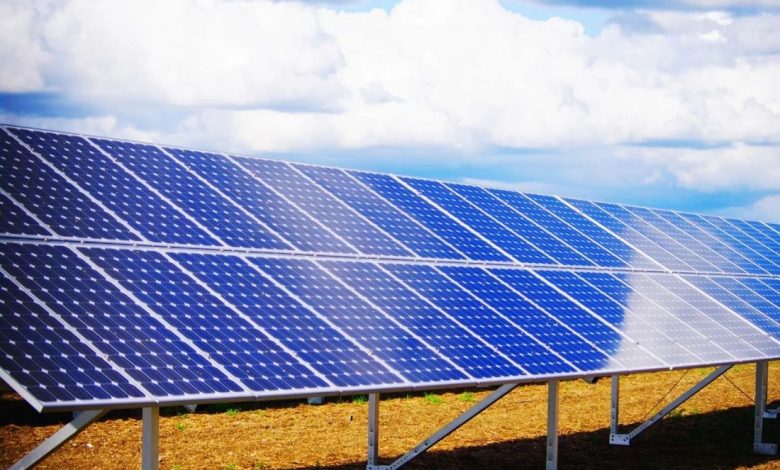
The residential solar market enjoyed its sixth consecutive record year in 2022, growing 40% over the year prior. This surge in popularity is driven not only by a desire to help protect the environment but the growing affordability and accessibility of residential solar systems. The financial benefits are such that soon, it won’t make sense for homes not to have a solar system.
If you’re still on the fence, check out this guide to using renewable solar energy to reduce, or even eliminate, your monthly energy bills.
1. Lower Energy Bills
The most straightforward financial benefit of going solar is that you’ll be reducing the amount of power you’re pulling from the grid. While that seems like an obvious perk, it nevertheless bears keeping in mind given recent surges in energy prices.
In 2022, the average consumer paid 14.3% more for electricity than they did in 2021. That price increase can’t be blamed entirely on inflation either, as the general increase in prices was only 6.5% last year. That means that even as the cost of living is rising across the board, energy prices are increasing more than twice as fast as other essentials.
There are myriad explanations for why that’s the case.
The war in Ukraine is one. Western sanctions limited the import of Russian oil and gas. And the push to support the Ukrainian war effort further took a toll on the existing fuel supplies.
The lingering effects of COVID are another. The pandemic caused supply global supply chain problems from which we’re still seeing the fallout.
These issues will eventually be resolved. All the same, they illustrate how effects outside of homeowners’ control can see them paying higher rates with little to no warning. Reducing your reliance on the local power grid can help you safeguard yourself against rising energy prices.
2. Net Metering
In some cases, your home solar array can do more than eliminate your energy bills. It can create a situation where the power company owes you money instead.
This is through the net metering program offered by most utilities. It allows homeowners to sell any excess energy produced by their solar panels back to the utility grid.
The homeowner’s energy meter measures the power drawn from the grid, as well as the excess energy produced by solar power systems. If the balance is in the homeowner’s favor, then the company will give them either a credit they can apply against future energy bills or even a cash rebate for the power they sold.
In addition to exploring the financial benefits of going solar, understanding how to make a pay stub can help you manage and track your savings more effectively.
Utility companies usually get to set the rates and rules for net metering, so you probably won’t be able to turn this program into your new side hustle. But it’s an effective way to save money while you save energy.
3. Increased Home Value
Solar power systems are an attractive asset for prospective homebuyers. The cost of living is a common concern for residents moving to a new city, and it can be easy to justify a few thousand extra dollars on their home loan if it means lower energy costs in the immediate term.
One study found that homes with pre-installed solar systems could sell for 17% more than equivalent homes without them. Not only that, but the same study found that homes with solar systems tend to sell about 20% faster than their non-solar counterparts.
If you’ve ever had to go through the home-selling process, you’ll know selling a property quickly is a boon for the seller. If a property sits on the market for too long, it puts potential buyers in a better position to negotiate for a lower price. So a solar system can help you get the optimal price for your home even beyond the material value it adds.
4. Federal and State Tax Incentives
To encourage the adoption of residential solar systems, federal and state governments offer incentives for homeowners who make the jump to solar power.
The main incentive to look at is the Solar Investment Tax Credit (ITC). Under this federal program, homeowners are eligible for a tax credit of up to 30% of the total cost of solar power systems installed through 2032.
This incentive is one good reason why homeowners should act sooner rather than later. The values of the credit will decrease to 26% for systems installed in 2033 and to 22% for systems installed in 2034. The tax credit will expire in 2035 unless Congress elects to renew it.
State-level incentives for solar energy vary.
Some states provide tax credits, rebate programs, or performance-based incentives for homeowners installing a solar power system. As you might imagine, the best ones tend to be in states that enjoy plenty of sunny weather. But it’s worthwhile to research, as you never know what perks you could find.
Your incentives may even carry depending on who your power provider is. For example, Duke Energy offers its North Carolina customers a $0.40/Watt rebate for systems up to ten kilowatts. If the average solar array is eight kilowatts, that would mean a rebate of $3,200.
These incentives can slash the cost of solar installation and are meant to lower the barrier of entry for homeowners. Even if the upfront cost is no object, they can help you save money immediately.
5. Local Solar Firms Can Help You Maximize Your Savings
While there are plenty of programs and incentives to help homeowners take a bite out of the cost of installing a solar system, it can be a daunting process. Missing out on one of the perks can mean thousands in lost energy savings over a system’s lifespan. It can even make the upfront cost of installing a system unaffordable.
That’s why it’s important to find a local solar provider. Quality examples like this solar installation company have an encyclopedic knowledge of federal, state, and local rebates and incentives.
Reap the Financial Benefits While Protecting the Environment
Solar power is becoming one of the most popular types of energy. Even setting aside the environmental impacts of fossil fuels, we’ll have to wean ourselves off of them regardless. At our current rate of consumption, we’ll expend the global supply of all fossil fuels before the end of the century.
If solar energy is an inevitability, it makes sense to start reaping its financial benefits as soon as possible. But it’s not the only way to cut your bills or boost the value of your home. For more tips, be sure to check our other home improvement blog posts.





